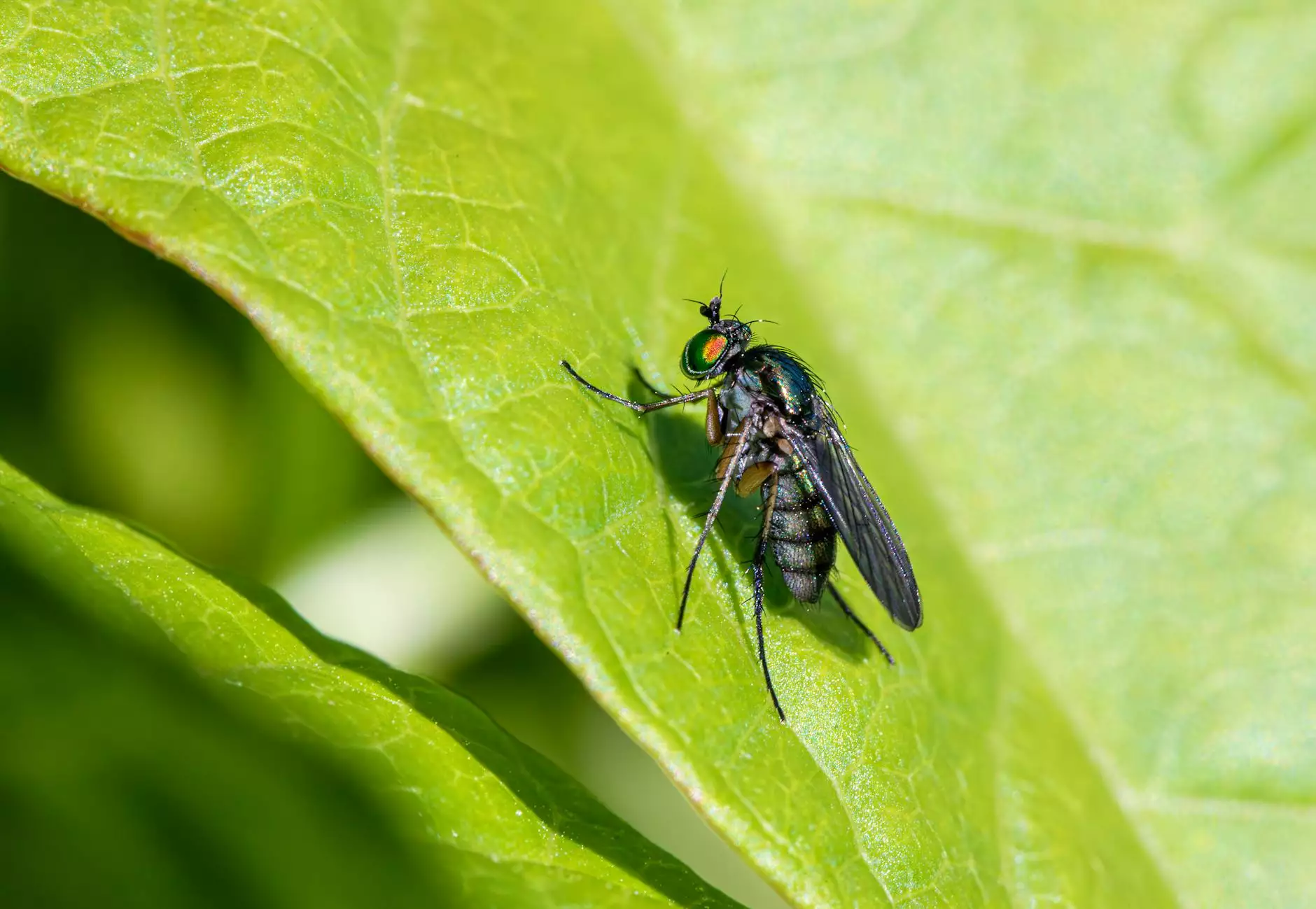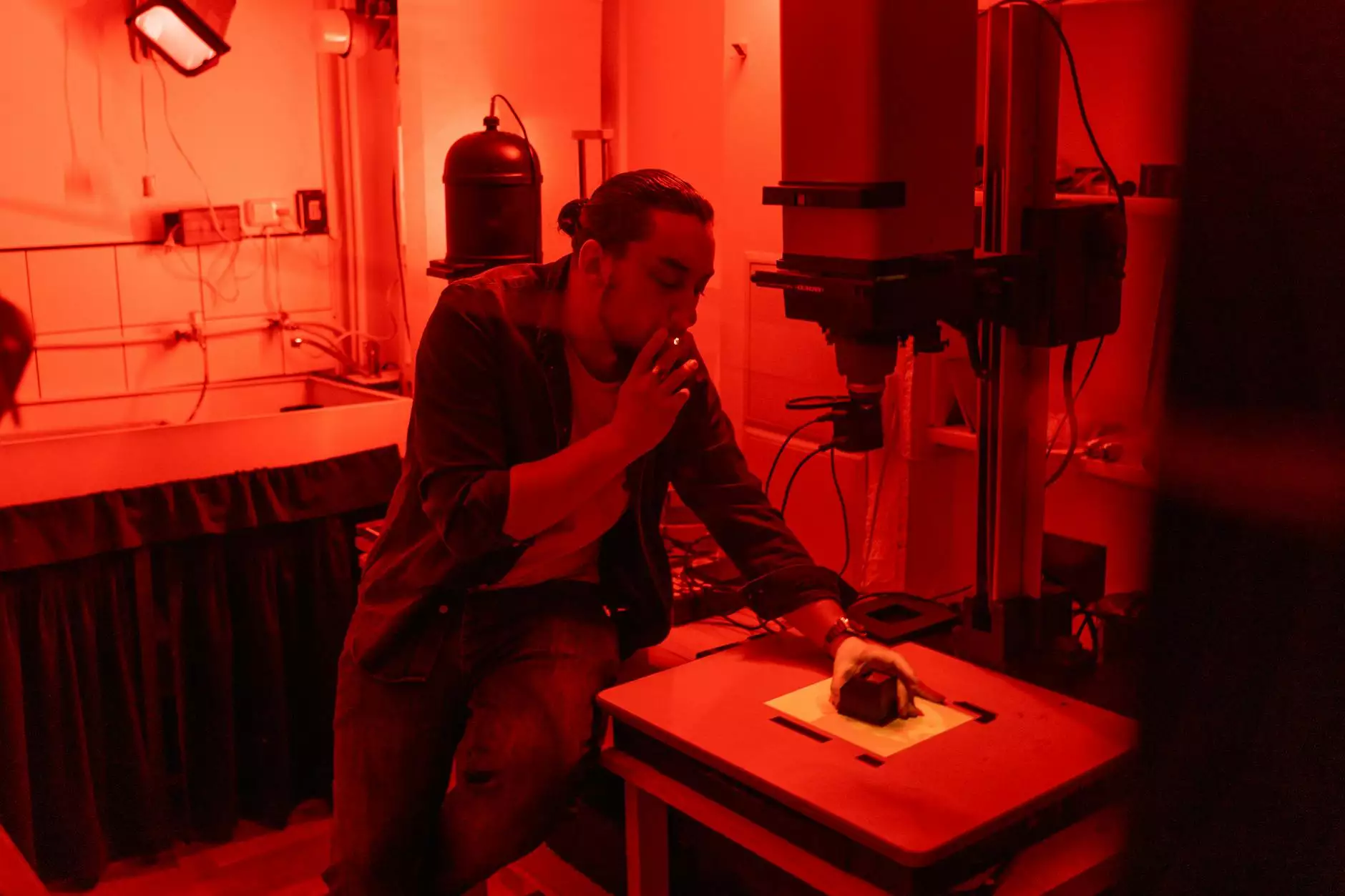Insect Pest Management: A Comprehensive Guide for Farmers

In today’s agricultural landscape, insect pest management plays a crucial role in ensuring the health and productivity of crops. Farmers are constantly challenged by a variety of pests that threaten their yield and quality of produce. As we delve into the intricacies of this vital aspect of farming, we will explore effective strategies, modern techniques, and the essential role of machinery and repair services in pest management.
Understanding Insect Pest Management
Insect pest management refers to the practice of controlling and mitigating the impact of harmful insect species on agricultural operations. This involves a variety of techniques, from biological control to chemical methods, aimed at maintaining pest populations at manageable levels.
The Importance of Insect Pest Management
- Maximizing Crop Yields: By effectively managing pest populations, farmers can protect their crops from significant damage and loss.
- Ensuring Crop Quality: Healthy plants produce higher-quality fruit and vegetables, enhancing market value.
- Promoting Sustainable Practices: Integrated pest management (IPM) emphasizes the use of ecological practices that minimize the use of synthetic pesticides.
Key Components of Insect Pest Management
Successful insect pest management necessitates a multi-faceted approach. Below, we discuss the key components that every farmer should consider:
1. Pest Identification and Monitoring
The first step in managing pests is identifying which insects pose a threat to your crops. Regular monitoring allows farmers to detect pest presence early, enabling prompt action. This can involve:
- Utilizing traps to capture potentially harmful insects.
- Regularly inspecting plants for signs of infestation, like chewed leaves or droppings.
- Employing professional pest control services for expertise in identification.
2. Cultural Practices
Cultural controls are essential in creating an environment that is less conducive to pest infestations. These practices can include:
- Crop Rotation: Changing the types of crops grown in a particular field each season can disrupt pest life cycles.
- Soil Management: Healthy soil promotes robust plants that can withstand pest pressures.
- Field Sanitation: Removing plant debris and weeds can eliminate pest habitats.
3. Biological Control
Biological control utilizes natural predators to manage pest populations. Techniques include:
- Introducing beneficial insects, such as ladybugs, that prey on aphids.
- Utilizing fungi, bacteria, or viruses that target specific pests.
- Encouraging natural habitats for beneficial organisms within the farming ecosystem.
4. Mechanical Control
Mechanical controls involve physical methods to eliminate pests. This can involve:
- Using barriers, such as row covers, to prevent pests from reaching plants.
- Employing traps for specific insect species to capture them before they can cause damage.
- Implementing farm equipment and machinery to manage pest populations effectively.
Modern Techniques in Insect Pest Management
The advancement of technology has brought about innovative solutions to traditional pest management practices. Here are some modern techniques:
1. Precision Agriculture
Precision agriculture involves using technology and data to monitor and manage agricultural operations. Farmers can utilize GPS and sensors to:
- Identify pest presence in specific areas of a field.
- Apply treatments only where needed, reducing chemical use and costs.
- Monitor crop health and changes in pest populations in real-time.
2. Integrated Pest Management (IPM)
Integrated Pest Management is an ecological approach that merges various pest control strategies to reduce reliance on chemical pesticides. Key components of IPM include:
- Combining biological, cultural, and mechanical controls with limited chemical interventions.
- Regularly assessing and reviewing pest populations to adapt strategies accordingly.
- Educating farmers and agricultural workers about sustainable practices.
3. Drones and Technology in Pest Control
The use of drones in agriculture has become increasingly popular. They can be used for:
- Surveillance of crop health and pest identification from an aerial perspective.
- Targeted spraying of pesticides to minimize impact on non-target organisms.
- Collecting data on pest behavior and distribution for better management strategies.
The Role of Farming Equipment and Repair in Pest Management
Farm equipment is vital in implementing pest management strategies efficiently. Regular maintenance and repair ensure that machinery performs optimally, especially during peak seasons when pest outbreaks may occur.
1. Importance of Reliable Farming Equipment
Farm machinery, from tractors to sprayers, is essential in executing effective insect pest management strategies. Reliable equipment allows farmers to:
- Applying pesticides accurately and effectively during infestations.
- Utilizing equipment for mechanical controls, such as harvesting or tilling.
- Monitoring crop health and pest presence efficiently over larger areas.
2. Regular Equipment Repair and Maintenance
Ignoring machinery maintenance can lead to equipment failure, risking crop yield and quality. Key practices include:
- Scheduling routine maintenance checks to avoid breakdowns during critical times.
- Keeping equipment clean to prevent disease spread between fields.
- Consulting with professionals from tsgcinc.com for expert repair services to ensure optimal performance.
Conclusion
In summary, effective insect pest management is essential for sustainable and productive farming. By understanding pest dynamics and employing a variety of control strategies—such as cultural practices, biological controls, and modern technologies—farmers can protect their crops and ensure high-quality yields. The integration of reliable farming equipment and regular maintenance plays a pivotal role in realizing these goals.
Investing in knowledgeable pest management practices today will pave the way for healthier crops and greater profitability tomorrow. Utilize the resources and connections at tsgcinc.com to strengthen your approach to combating pests and enhancing your farming operations.









